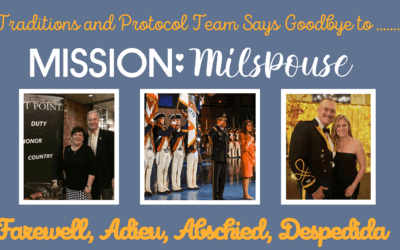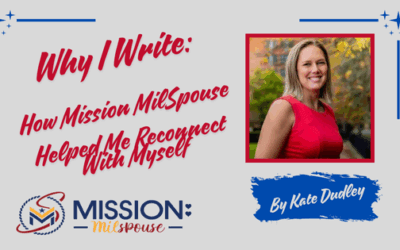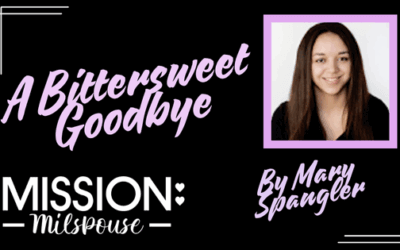I plunked my groceries down at the commissary self check-out, its electronic voice bleating at me incessantly to “rescan your item and place it in the bagging area,” even though I’d already done that for the love of God, when suddenly I heard it.
The familiar strains of guitar from the song “Sailing” by Christopher Cross washed across me on the ever present background of supermarket music, once popular tunes now described as “yacht rock.”
For a split second, I was 11 again, riding in my uncle’s car, windows rolled down to the hot New Mexico summer wind. I closed my eyes now as I felt again for a brief second the carefreeness of that moment as I dipped my hand up and down outside the car door, savoring the breeze against my skin.
*BEEP*
The automatic checkout’s impatient noise nudged me to return to the present, and I turned back to scanning the groceries. (And by the way, please tell me what is so “automatic” about it if the real-life human cashier has to constantly clear it for me to continue? Just proof that machines won’t ever run the world.)
A funny thing about my instant love as a child for the song “Sailing” is that, at that point in my life, I had never been in a sailboat, much less even seen an ocean in person yet.
So it’s not that I could identify at all with the song. But there was a peacefulness about the gentle lyrics and music that appealed to me, that soothed me in all my middle school, pre-teen angst. And hearing it now still takes me back to that time in my life, people–many gone now–and places.
As a preteen and teenager, I insisted that I couldn’t WAIT to get away from my hometown.
The ability to do something as simple as walk to the community pool or go to a store without running into someone who knew me or my family was appealing. They’d pin me down, these well meaning, often older folks.
“Oh look! Little Jennifer Brown! How you’ve grown!”
I’d groan inwardly, make the required small talk, because we were raised to be polite and trust me it would get back to my parents if I wasn’t.
I would listen to the updates about people I barely knew and answer questions about how my parents or grandparents were doing, hear the rehashing yet again of something funny or embarrassing I’d done when I was little that I apparently would never live down or forever be defined by.
I’d force a smile and try to move on quickly. Oh, how it annoyed me then, that awkward teenager trying to carve out her own identity in the shadow of a well-loved and apparently very friendly family.
They seemed to know everybody.
How soon I’d learn as a military spouse how very much indeed I’d miss the comfort of being known.
There came a time just a few years later when I only wished my errands could be interrupted by running into someone I knew, anyone.
And I’d also realize that being a military dependent meant that people didn’t have much interest in my information or even my first name (being called “Mrs. McDonald” by military personnel when I was in my twenties was so strange).
One of the first places I learned this was at the base hospital when I visited for my yearly checkup shortly after I was married.
“Social security number, please.”
The weary nurse at the base Family Practice Clinic’s front desk shoved a lock of hair out of her eyes and waited not so patiently for my answer so she could check me in.
I started to rattle off my own without thought when she stifled a laugh.
“No, honey, not yours. Your sponsor’s.”
My sponsor. Steve. Of course. His name, his Social Security number were now the ticket for me to do anything military related, to complete the daily tasks of life like buying groceries or accessing medical care.
I was a dependent.
That’s the term applied to you once you’re married to a military member. And while that’s a fact, when that word is thrown around carelessly, many of us military spouses have a reaction.
Have you heard the old cringe-worthy saying, “If the military wanted you to have a spouse, they would have issued you one”?
While I do think that attitude has died, for the most part, there’s still a sense of being patted on the head like a small child or marginalized when referred to as a dependent.
While the term dependent simply means someone who’s entitled to the benefits, privileges, and rights that come with being married to, or the child of a service member, we can feel anything but dependent as we handle forging a life not on our terms.
We’re strong. We’re adaptable. Truth be told, we’re incredible. Dependent? No.
While I get why many of us feel the term dependent is demeaning and belittling, one way I learned to cope with it over the years was to turn it on its head a bit. I am dependent on my spouse. And he is dependent on me.
That’s kind of what marriage is designed for, isn’t it?
If I ever get to a point where I feel no need for my husband, I think that would be a scary place. We each bring our strengths and weaknesses to our relationship, and are truly dependent on each other.
Something I discovered as a long-term military spouse was how much my family needed me, in fact, how much my husband needed me. I was the rock, the constant.
I kept the homefires burning, we could say.
I was the one who taxied kids to soccer and baseball practice, dance classes, and piano lessons.
I researched homeschool support groups, enrichment classes, and co-ops at each new duty station.
I was the one who met with teachers, made ER runs, and stayed up at night with scared kiddos while my husband was deployed.
I talked through middle school drama and budding romances, wiped up vomit, and stretched out my arms in delight as each of our toddlers wobbled towards me, trying out their first timid steps.
I was there for the days we declared “let’s have a movie day!” and put the homeschool math and phonics notebooks away so we could embrace the joy of being together.
I was there for the snowball fights, endless PB & J’s, sibling squabbles, sticky fingers, and quiet bedtime routines.
I was the one who helped unsure teenagers adjust to living in a foreign country, venture into a new friend group, and learn to order food in another language.
I coordinated drivers’ ed classes and standardized testing and planned college visits back to the States.
I was there. For all of it. And what a privilege.
I’m so glad it was me who got to be there, and I wouldn’t trade any of it.
Like my other military spouse heroes, both those who’ve come before me and those who will come after, portions of my identity have morphed across the decades and I’ve been many things to many people —daughter, niece, granddaughter, student, wife, mother, homeschooler, friend, nurse, writer, pianist, podcaster, and now Gigi to my grandchildren— but none of these roles completely define me.
I’ve reinvented myself over and over, sometimes by choice and often by necessity, but at heart I’m still that young girl growing up in the warmth of the New Mexico sun.
I hope I always keep her wonder, her ability to pause and take in a moment, to feel the breeze play through her hair, to appreciate good music.
Dependent?
Yes, in all the helpful, healthy ways of needing my husband, other people, and a supportive community. Legally in the eyes of the military?
Perhaps.
But oh, so much more. And so are you.
*This is an excerpt from Jen’s upcoming book Milspouse Matters: Sharing Strength Through Our Stories, which will be published by W. Brand Publishing in Fall 2023. Used with permission. Learn more about it here.
*You can also visit Jen’s personal site.
*Check out the M:M Homepage for more inspiring posts.








Jen! What a beautiful way to turn “DEPENDENT” around. In my own milspouse life I have gone back to THIS idea and I think your LINE hits it right on the head: “I was there. For all of it. And what a privilege.” What a privilege indeed.
Thank you so much for allowing me to share part of my journey!